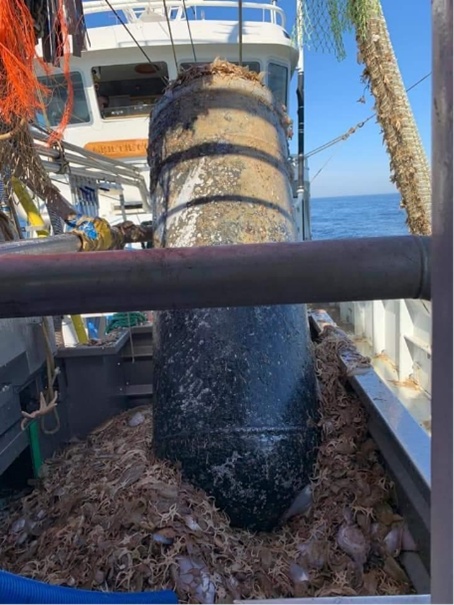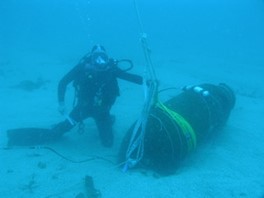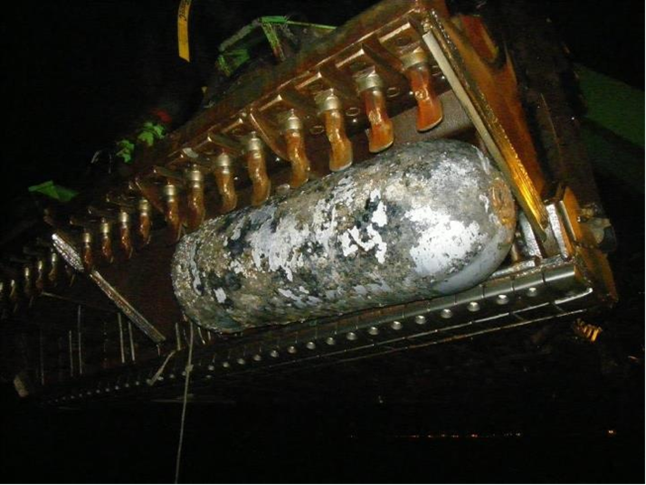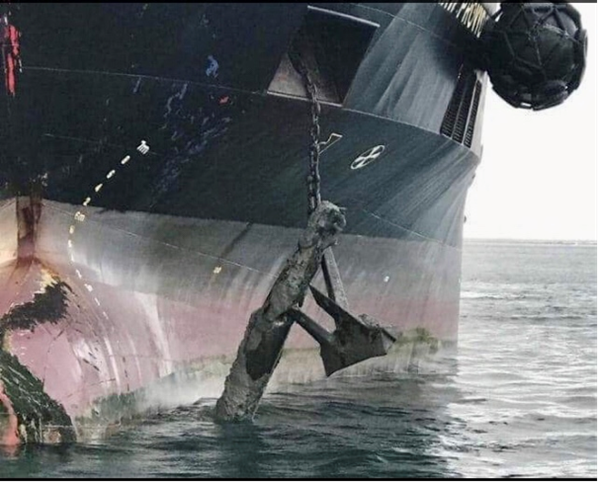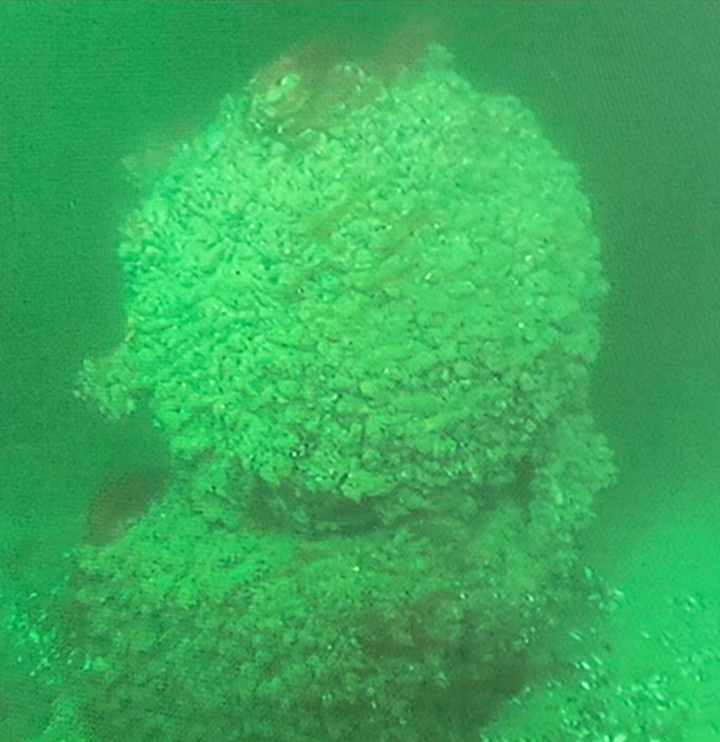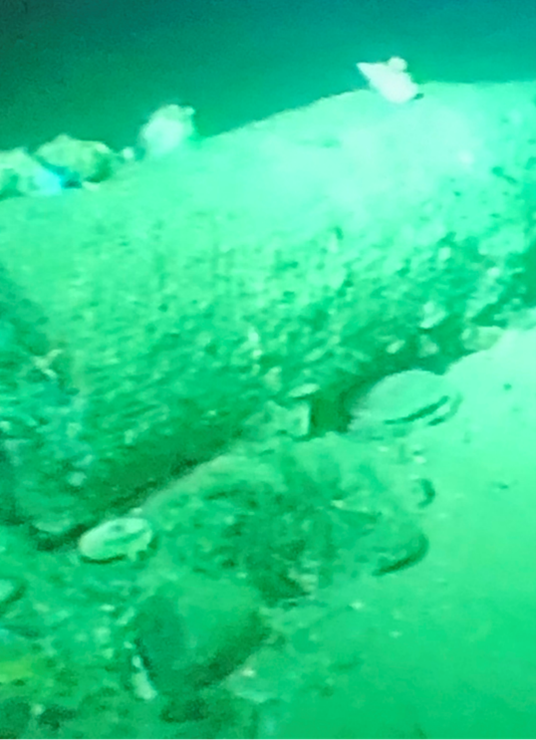UXO at Sea – Things that go bang!
Unexploded ordnance (UXO) is not a subject that IMCA has traditionally been involved. However in recent months we have provided technical assistance for a competence framework which has been submitted to the International Standards Organisation (ISO). This Standard should be published in Q3 2021. In the meantime we would like to share with you an extract from an article by Chris Baldwin of Marine Safety & Security Consultants about key steps in ensuring safe and efficient UXO operations.
Unexploded ordnance (UXO) is not a subject that IMCA has traditionally been involved with. However in recent months we have provided technical assistance for a competence framework which has been submitted to the International Standards Organisation (ISO). This Standard should be published in Q3 2021. In the meantime we would like to share with you an extract from an article by Chris Baldwin of Marine Safety & Security Consultants about key steps in ensuring safe and efficient UXO operations.
On the 15th December 2020 off the coast of Norfolk, UK, whilst a crab potter, the 12.9m long, 29.75 tonne Galwad-Y-Mor, was hauling in its fishing gear, an explosion occurred, causing severe damage to the fishing vessel. The explosion lifted the whole vessel out of the water and both it and the crew suffered serious damage and injury. Fortunately, nobody was killed and the vessel was towed to Grimsby for investigation. The initial assessment is that the explosion was caused by the fishing gear disturbing UXO on the seabed. The investigation continues.
The amount of historical ordnance still lying in European waters is unknown, but at the rate of one or two finds of UXO per week it will continue for at least 50 years. This rate of UXO action in coastal states as the development of offshore renewable wind farm projects grow internationally is likely to significantly increase.
The common approach for offshore windfarm developments is for an initial desk top study, based on records of local conflict activity, followed by a geophysical survey phase, using seabed survey technologies appropriate to the potential UXO and seabed type.
The results of surveys allow competent marine EOD specialists to make an informed judgement and to be able to provide the client with recommendations for how to deal with potential UXO (pUXO).
These options could include target investigation of pUXO contacts, or avoidance by deviating the intended cable or pipeline path or the option of removal and/or disposal of the UXO using various techniques.
Clearly the role played by the specialists employed in this work is critical and a degree of assurance that those involved are qualified and competent to do this is necessary to provide confidence that the resulting measures taken are both commercially efficient, safe and environmentally acceptable.
In some countries, the use of military assets for UXO disposal is not always deemed appropriate, being seen as subsidising private enterprise, as the new offshore energy fields are commercial ventures. Therefore, the commitment of publicly funded assets for this purpose without recompense, is considered by some Governments to be inappropriate.
Commercial EOD services are filling this gap. A few countries, such as Germany and the Netherlands, have introduced statutory standards for the conduct of commercial marine EOD operations.
But if the consequences are so potentially dangerous, how can energy companies and major contractors gain assurance that all personnel engaged in EOD work in the commercial marine environment have the correct qualifications and relevant experience? where there is currently no international benchmark by which client companies can base this assurance of competency for marine EOD operations?
In the autumn of 2018 following discussion with commercial EOD stakeholders, I had the opportunity to raise the lack of professional standards for UK CMEOD service providers with Nusrat Ghani MP, the former UK Shipping Minister. Subsequently, I was invited to initiate a competency project with industry stakeholders including the UK Maritime and Coastguard Agency, HSE, the insurance industry and the British Standards Institute (BSI).
This initiative aimed to develop a framework for competency standards applicable to the CMEOD community and included Australian, Canadian, Dutch, French, US and Japanese representation.
A major milestone has been reached in ensuring safe and efficient Explosive Ordnance Disposal (EOD) and unexploded ordnance (UXO) operations. The final draft of the document outlining the competence framework in ‘Qualification and Training Standards for Commercial Marine EOD & UXO Operations’ has been submitted for scrutiny to the International Standards Organisation (ISO) Technical Committee 8 Working Group, responsible for training and education in the maritime sector. It is hoped that this Standard, on which IMCA has provided technical assistance, will be produced by the end of the third quarter of 2021.
The completion of this initial draft has been a great team effort and thanks go to all concerned. It is expected that the marine insurance industry will adopt the Standard once published as a key aspect of the due diligence process for marine projects involving EOD operations.
Photos courtesy of Mr R Rickard Exord Ltd & Mr R Watson
About Chris Baldwin
Some of you may remember Commander Chris Baldwin RNR from his days as a Technical Adviser at IMCA? Currently Chris is an Adviser at Marine Safety & Security Consultants (MSSC). A role that uses his experience as a Royal Navy Mine Warfare and Clearance Diving Officer and along with his background with IMCA, is helping with the creation of ‘Qualification and Training Standards for Commercial Marine Explosive Ordnance Disposal (EOD) & unexploded ordnance (UXO) Operations’.
Chris has written an article on “The Unseen Hazard: Unexploded ordnance at sea and how to deal with it” which is in full below.
Editorial
Feedback and suggestions for future articles are welcome: [email protected]
Subscribe
Online signup coming soon - in the meantime, please email [email protected]

